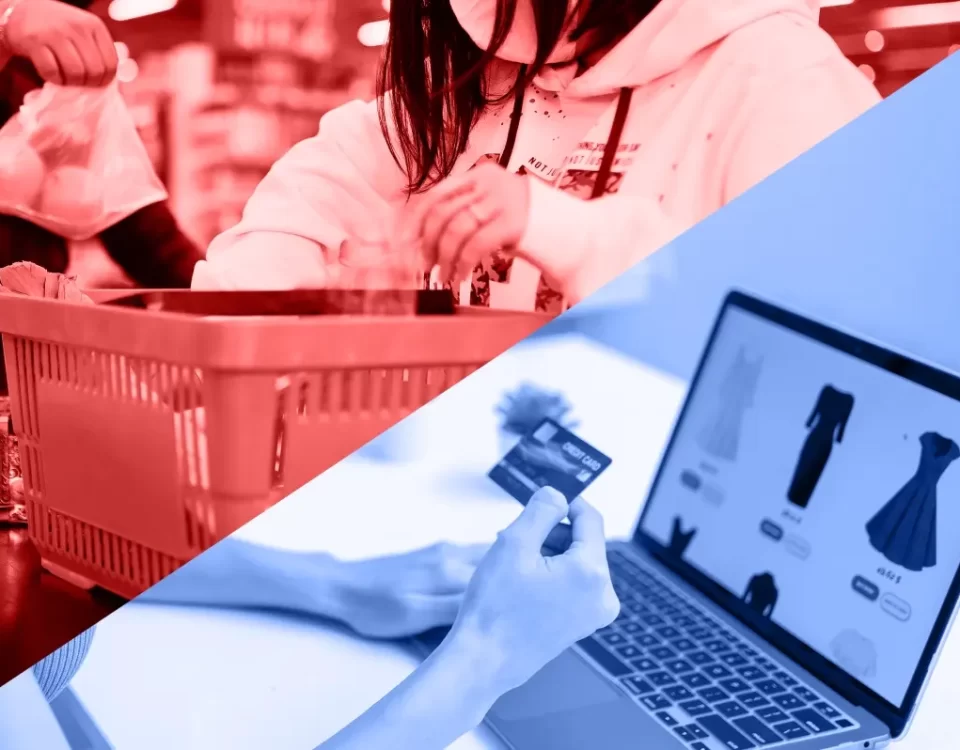How Gen Z Will Transform the Future of Customer Experience

A Look at the Future of Shopping: Consumer Trends in 2023
May 5, 2023
The Evolution of the Advertising Industry: Traditional to Digital
May 18, 2023The future of customer experiences is heavily influenced by the younger millennial and Generation Z demographics, whose evolving needs and data will transform how businesses function moving forward.
At IDC Directions 2023, analysts analyzed how customer data affect business purchasing decisions. This data has been affected due to the COVID-19 pandemic and generational changes with Gen Z joining the workforce and consumer markets. The digital-first approach to customer experiences is becoming increasingly important, with personalization and AI-powered content creation playing a pivotal role in how businesses interact with their customers.
Tom Mainelli, IDC’s general vice president of devices and consumer research, led the session “General Disruption: Adapting Your Future Consumer Strategy.” He expressed concerns about how younger generations would influence everything from customer-businesses interaction to using technologies like artificial intelligence.
He emphasized during the session, “The trends that are occurring here are going to maybe happen first in consumer, but they’re going to be impactful across the enterprise.”
More Influencers, More Marketing Opportunities
Experts often refer to Gen Z and younger millennials as digital natives since they grew up alongside various consumer technologies such as smartphones and laptops. Around eight in ten consumers post online at least once a week, according to Mainelli. As platforms, i.e., YouTube and TikTok, make content creation more accessible, the number of content creators will increase.
The power of popular content creators highlights the potential benefits of influencer marketing strategies for businesses. This method can help establish customer trust, which younger generations value significantly, with relatively less effort and cost than traditional approaches. Most influencers have built their audiences’ trust, so businesses can target new consumers and get more exposure from verified sources.
Mainelli emphasized that influencer marketing has the potential to revolutionize traditional marketing methods. Influencers are changing the balance of tastemaker powers, reaching audiences that legacy media cannot.
The Future of CX will have Long-Term Relationships
Over the past decade, anything as a service (XaaS) has taken over enterprise technology. Although the consumer market influences business markets, XaaS allows enterprises to influence consumers.
XaaS has the potential to revolutionize CX and how organizations establish relationships with their customers. Rather than focusing on customer acquisitions, an as-a-service model concentrates on customer retention. For instance, consumers may choose to pay for a product over several years instead of facing a high upfront cost. Over time, this interaction between the customer and the organization can build stronger relationships.
According to Mainelli, the XaaS approach benefits organizations by providing information on the customer lifecycle, such as how often customers refresh their devices, come across pain points, and spend more time collecting data for improved personalization.
Mainelli said that XaaS builds a one-to-one relationship between vendors and customers in a confidential environment. He adds that the more frequently organizations interact with customers throughout the subscription life, the better the relationship becomes.
The Significance of AI for Future Consumers
AI plays an essential role in how consumers engage with content. Whether it’s content from popular influencers or organizations, AI-powered recommendation engines play a vital role in ensuring that users get to view them. TikTok’s recommendation engine is the most famous example at present. While users can follow different accounts, TikTok’s ‘For You’ page is based on its algorithm, which offers content to users based on their interests.
In addition, AI has become increasingly common in content creation, with OpenArt producing AI-generated art and ChatGPT generating written content. While these tech tools have received praise and criticism, vendors are expected to develop AI tools that enable users to create content more effortlessly.
AI may also significantly enable more personalization, leading to hyper-personalization, where AI builds and updates customer profiles using new data. This would lead to new methods of collecting, processing and managing customer data, which would become increasingly important to customers as they prioritize trust and privacy.
Mainelli said that “personalization” would change the consumer-vendor relationship dynamic, requiring a move away from one-size-fits-all products. In case, If you’re a hyper-personalized service that gets it wrong, you’re probably not going to stick around.”
Final Words
Younger generations are creating new opportunities for organizations to approach their target audience, which is changing in a digital-first world. Over time, businesses can aim to build long-lasting relationships with future consumers through their services and personalization, but they must remain up-to-date with AI and XaaS models.





